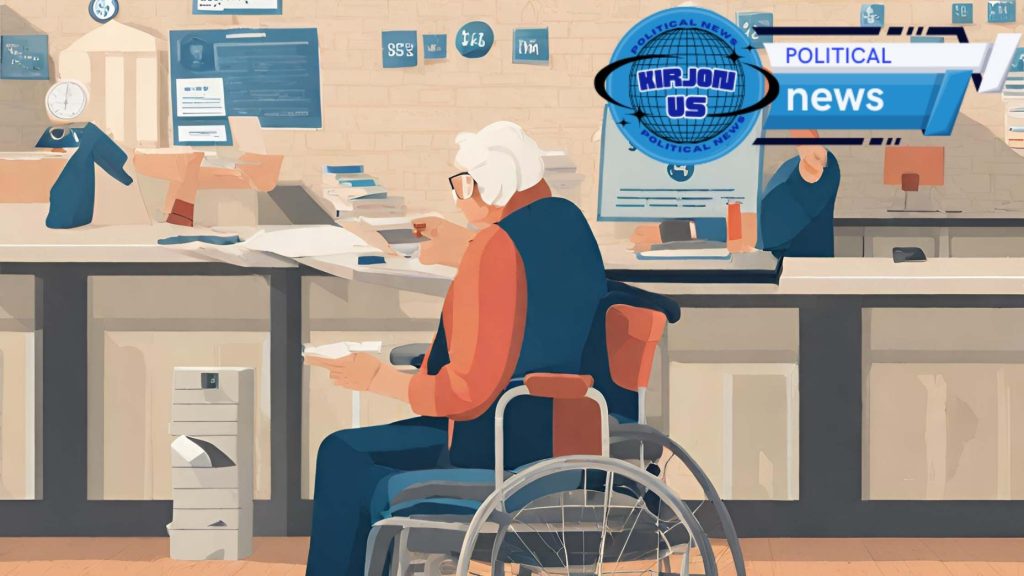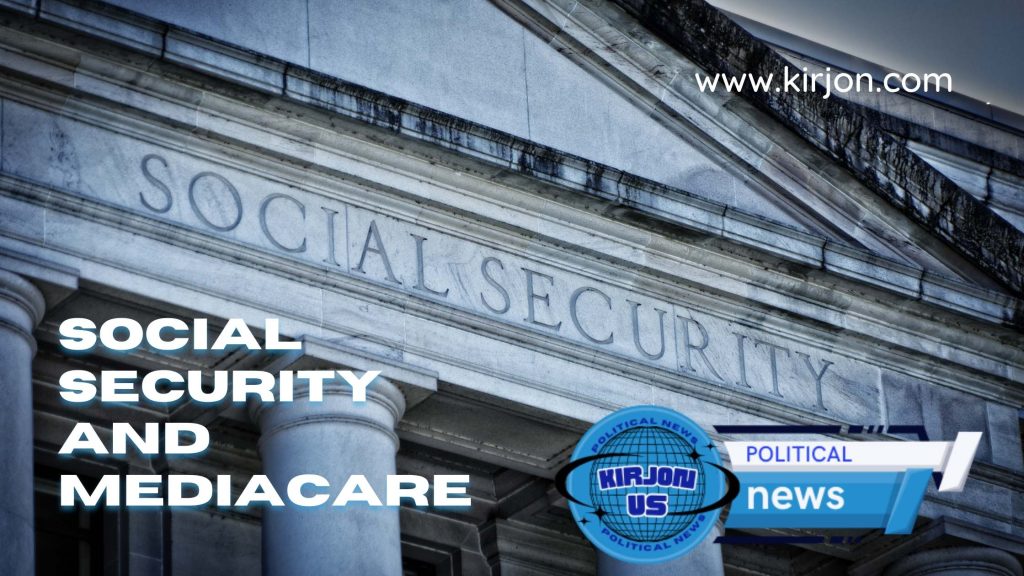Last February, a resounding chorus of voices echoed across the nation as thousands of seniors united under the banner of the AARP, sending letters to President Joe Biden. Their message, succinct yet powerful, implored Congress to safeguard the pillars of Social Security and Medicare, igniting a wave of advocacy that reverberated through the halls of power.
Upholding Promises: Biden’s Commitment to Social Security and Medicare

In a pivotal moment during his annual State of the Union address, President Biden seized the opportunity to address the concerns of millions of Americans. With unwavering resolve, he declared an imperative stance: “Urge Congress to keep their hands off our Social Security and Medicare.” The response was resolute, with both Republicans and Democrats embracing the call to shield these essential programs from any imminent threats.
A Bipartisan Consensus: Navigating the Path Forward
As the political landscape evolves, the issue of Social Security and Medicare’s sustainability looms large. Despite assurances from both President Biden and former President Donald Trump, the looming specter of insolvency casts a shadow over the horizon. However, amidst the uncertainty, leaders from across the aisle are seeking common ground, propelled by a shared commitment to action.
Democratic Initiatives: Pioneering Solutions for Social Security

Representative John Larson, a stalwart advocate for seniors’ rights, spearheads a groundbreaking bill poised to redefine the future of Social Security. The Social Security 2100 Act embodies a bold vision, encompassing measures to bolster benefits and ensure long-term solvency. With provisions for a 2% across-the-board benefit increase and enhanced support for low-income seniors, the bill charts a course towards a more secure future for all Americans.
A Republican Perspective: Exploring Alternative Solutions
In the quest for viable solutions, Republican leaders like Senator Bill Cassidy of Louisiana advocate for innovative approaches. Proposing the creation of a separate investment fund, Cassidy seeks to address Social Security’s impending shortfall head-on. However, amidst divergent viewpoints, the path forward remains uncertain, underscoring the pressing need for bipartisan collaboration.
Navigating Challenges: Striking a Balance

As discussions intensify, the question of funding emerges as a pivotal concern. While proposals to raise taxes on high earners garner attention, concerns linger regarding the potential ramifications. With projections indicating looming benefit cuts and Medicare’s uncertain future, lawmakers grapple with the complexities of safeguarding these vital programs while ensuring fiscal responsibility.
A Call to Action: Empowering Voters to Shape the Future
As the nation stands at a crossroads, the fate of Social Security and Medicare hangs in the balance. With the upcoming elections poised to shape the trajectory of these programs, the voices of voters resonate more profoundly than ever. Organizations like the AARP continue to champion advocacy efforts, urging candidates to prioritize the preservation of Social Security in their policy agendas.
Conclusion: Forging a Path Towards Stability
In the crucible of political discourse, the preservation of Social Security and Medicare stands as a testament to our collective commitment to safeguarding the well-being of generations to come. As we navigate the complexities of governance, let us forge a path guided by compassion, foresight, and unwavering dedication to securing a future where every American can retire with dignity and security.
Faqs
1. How does Social Security work?
Social Security operates as a federal program designed to provide financial support to eligible individuals during retirement, disability, or following the death of a spouse or parent. Workers contribute to the program through payroll taxes, and benefits are based on the individual’s earnings history.
2. When can I start receiving Social Security benefits?
The age at which you can begin receiving Social Security benefits depends on several factors, including your birth year. While full retirement age is typically between 66 and 67, you can choose to start receiving reduced benefits as early as age 62 or delay benefits until age 70 for increased payouts.
3. What services does Medicare cover?
Medicare is a federal health insurance program primarily for individuals aged 65 and older, as well as certain younger individuals with disabilities. It consists of different parts, including Part A (hospital insurance), Part B (medical insurance), Part C (Medicare Advantage), and Part D (prescription drug coverage). These parts cover various healthcare services, including hospital stays, doctor visits, preventive care, and prescription medications.
4. How do I enroll in Medicare?
Most individuals are automatically enrolled in Medicare Part A and Part B when they turn 65 and are receiving Social Security benefits. However, if you’re not automatically enrolled, you can sign up for Medicare during specific enrollment periods, such as the Initial Enrollment Period (IEP) around your 65th birthday or the General Enrollment Period (GEP) if you missed your IEP.
5. Will Social Security and Medicare be available in the future?
While there are concerns about the long-term financial sustainability of Social Security and Medicare, efforts are underway to address these challenges. Lawmakers are exploring various proposals to shore up these programs, including adjusting tax rates, increasing eligibility ages, or implementing benefit reforms. Despite uncertainties, both programs remain essential components of the social safety net.
6. How can I advocate for the protection of Social Security and Medicare?
Individuals can advocate for the preservation of Social Security and Medicare by staying informed about proposed legislation, contacting elected representatives to express their views, and participating in advocacy campaigns organized by organizations such as the AARP. By raising awareness and voicing their concerns, citizens can help ensure the continued viability of these critical programs.







